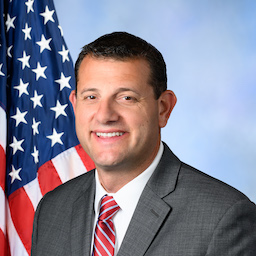- Home
- About
-
Services
- Art Competition
- Community Project Funding Map
- Congressional App Contest
- Congressional Certificate
- Event Request
- Flag Request
- Grants
- Grant Letters of Support
- Help with a Federal Agency
- Inauguration
- Internships
- Kids Page
- Meeting Request
- Service Academy Nominations
- Tour Requests
- Vietnam Veteran Commemoration
- Government Shutdown FAQ
- Issues
- Media
- Contact

Press Releases
Reps. Valadao, Manning Introduce Bipartisan Legislation to Expand Mental Health Education in Schools
Washington,
May 15, 2023
|
Faith Mabry
Tags:
Health Care
Congressman David G. Valadao (CA-22) joined Congresswoman Kathy Manning (NC-06) to introduce the Improving Mental Health and Wellness in Schools Act. This bipartisan legislation adds mental health as a category for inclusion in local school wellness policies to teach children and adolescents about the interconnectedness of physical and mental health.
WASHINGTON – Today, Congressman David G. Valadao (CA-22) joined Congresswoman Kathy Manning (NC-06) to introduce the Improving Mental Health and Wellness in Schools Act. This bipartisan legislation adds mental health as a category for inclusion in local school wellness policies to teach children and adolescents about the interconnectedness of physical and mental health. A companion bill has been introduced in the Senate by Senators Cynthia Lummis (R-WY) and Amy Klobuchar (D-MN). “Pandemic school closures caused an alarming rise in mental health issues for young people, and as a father of three these trends are a big concern to me,” said Congressman Valadao. “Incorporating mental health education into existing school wellness programs will help to create a comprehensive approach to what our students are already learning about healthy wellness habits. This bipartisan bill ensures Central Valley schools have the tools they need to educate students about the importance of maintaining their mental and physical health so they can lead happy, fulfilling lives.” “Students across the nation are grappling with the repercussions of the pandemic and increased pressures from social media,” said Congresswoman Kathy Manning. “Congress must act urgently to address the mental health needs of students. I’m proud to reintroduce my bipartisan bill to integrate mental health education and services into existing school wellness policies.” “The EDC is thrilled to work with Representatives Manning and Valadao on the Improving Mental Health and Wellness in Schools Act, said EDC Board President, Christine Peat, PhD, FAED, LP. “This important initiative represents a critical improvement in the ability to address eating disorders (and global mental health concerns) in a proactive and preventive fashion among our nation’s vulnerable youth. Including mental health in local school wellness policies ensures that we are supporting all aspects of a student’s wellbeing and, in doing so, better-equipping students with the knowledge and skills they need to thrive.” Background: According to the Centers for Disease Control and Prevention, emergency room visits for eating disorders doubled in girls between ages 12 to 17 during the pandemic. Studies show that adolescents living in rural communities may be at increased risk for eating disorders due to compounding problems such as a lack of regular access to nutritious food, living in areas considered to be “food deserts”, and financial stress that leads to a reliance on highly processed foods. This bill is endorsed by the Eating Disorders Coalition, the National Association of School Psychologists, the National Alliance for Eating Disorders, and the American Psychological Association. |

